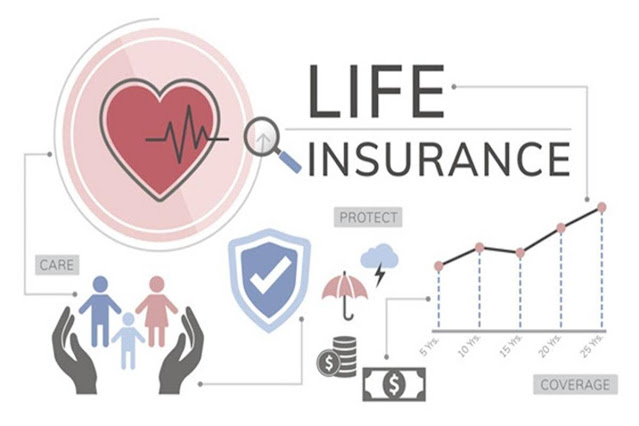The Benefits of Health and Dental Insurance
Benefits of Health and Dental Insurance
Health and dental insurance are important forms of protection for individuals and families. They help to cover the costs of medical treatments and procedures, as well as dental care. Without insurance, many people would be unable to afford the high costs of healthcare, which can lead to financial strain and even bankruptcy. In this blog post, we will explore the benefits of health and dental insurance, the different types of coverage available, how to choose the right plan, and how to maximize your benefits.
The main benefit of health and dental insurance is that it
helps to cover the costs of medical treatments and procedures, as well as
dental care. This can include things like doctor's visits, prescription drugs,
hospital stays, and more. Without insurance, many people would be unable to
afford the high costs of healthcare, which can lead to financial strain and
even bankruptcy.
Another benefit of health and dental insurance is that it
provides peace of mind. Knowing that you have coverage in case of an unexpected
illness or injury can help to alleviate stress and anxiety. Additionally,
having insurance can also help to ensure that you receive regular check-ups and
screenings, which can help to detect health problems early and prevent them
from becoming more serious.
Different Types of Coverage
There are many different types of health and dental
insurance available, each with its own set of benefits and drawbacks. Some of
the most common types include:
Employer-Sponsored Insurance: Many employers offer health
and dental insurance as a benefit to their employees. This type of insurance is
usually the most affordable option, as the employer will often cover a portion
of the premium.
Individual Plans: For those who are self-employed or do not
have access to employer-sponsored insurance, individual health and dental
insurance plans can be purchased. These plans can be more expensive than
employer-sponsored plans, but they offer more flexibility in terms of coverage
options.
Government-Sponsored Insurance: Some countries have
government-sponsored health and dental insurance programs that are available to
all residents. These plans typically have lower costs and more comprehensive
coverage than private insurance plans, but they also tend to have longer wait
times for certain treatments and procedures.
Supplementary insurance: Some people choose to supplement
their existing insurance coverage with additional insurance plans, such as
critical illness insurance or dental insurance. These plans provide additional
coverage for specific types of care, but they can also be more expensive than
traditional health insurance.
Choosing the Right Plan
When choosing a health and dental insurance plan, there are
several factors to consider. Some important things to consider include:
Cost: The cost of the plan will be an important
consideration, as you will need to be able to afford the premium.
Coverage: Make sure that the plan you choose covers the
types of medical treatments and procedures that you are likely to need.
Network: Make sure that the plan you choose includes a
network of providers that you are comfortable with.
Deductibles: Be sure to understand the plan's deductibles
and out-of-pocket maximums, as these can greatly affect the overall cost of the
plan.
Prescription drug coverage: Some plans only cover a limited
number of prescription drugs, others have a formulary or list of covered drugs.
Make sure the plan you choose covers the medications you need.
Maximizing Your Benefits
Once you have chosen a health and dental insurance plan,
there are several things that you can do to maximize your benefits. Some tips
include:
Take advantage of preventive care: Many super visa insurance plans cover preventive care, such as annual check-ups and screenings, at no additional cost. By taking advantage of these services, you can help to detect health problems early and prevent them from becoming more serious.
Use in-network providers: Many insurance plans have a
network of providers that they have negotiated discounted rates with. By using
in-network providers, you can save money on your healthcare costs.
Understand your coverage: Make sure you understand what your
insurance plan covers and what it doesn't. This will help you to avoid any
surprises when it comes time to pay your bill.
Take advantage of wellness programs: Many insurance plans
offer wellness programs, such as gym memberships or smoking cessation programs,
at a discounted rate or even for free. These programs can help to improve your
overall health and lower your healthcare costs in the long run.
Keep track of your claims and expenses: Keep track of all of
your healthcare expenses, including doctor's visits, prescription drugs, and
other treatments. This will help you to stay on top of your out-of-pocket costs
and ensure that you are getting the most out of your insurance plan.
Conclusion
Health and dental insurance are important forms of protection
for individuals and families. They help to cover the costs of medical
treatments and procedures, as well as dental care. There are many different
types of coverage available, and it's important to choose the plan that best
suits your needs. By taking advantage of preventive care, using in-network
providers, understanding your coverage, and keeping track of your claims and
expenses, you can help to maximize your benefits and lower your healthcare
costs. Don't neglect your oral health and consider adding a dental insurance to
your health insurance plan.




Comments
Post a Comment